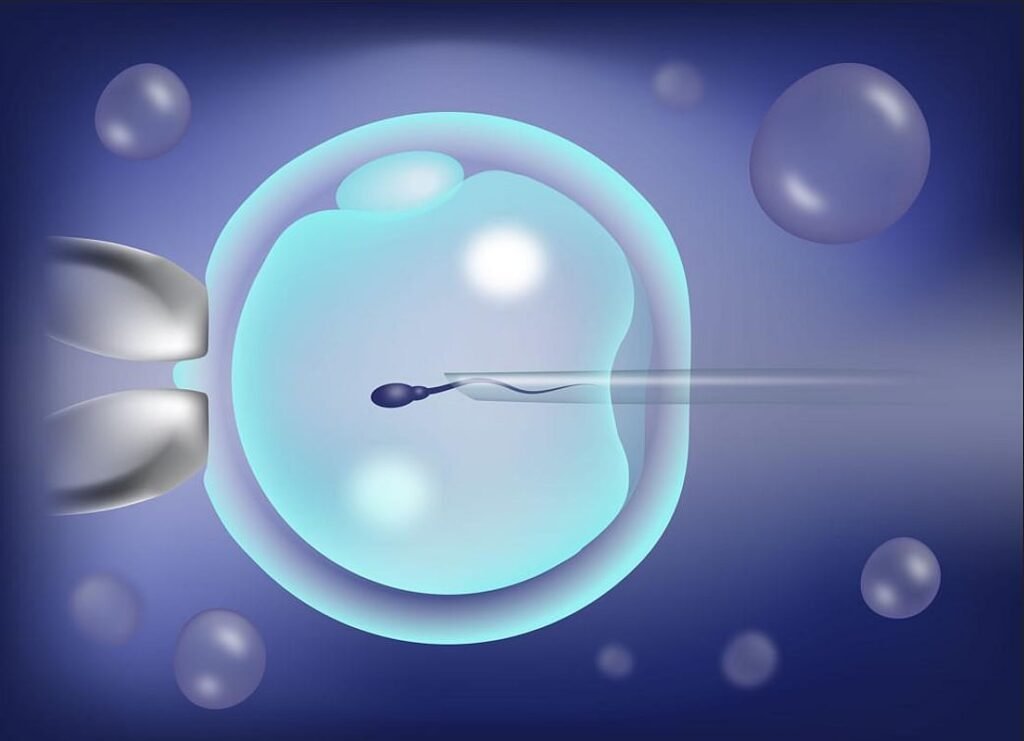Intracytoplasmic Sperm Injection (ICSI): A Precise Technique for Treating Infertility and Achieving Parenthood

Intracytoplasmic Sperm Injection (ICSI) is one of the most significant and precise medical breakthroughs in the field of infertility treatment. This procedure offers a real opportunity for couples facing difficulties conceiving due to low sperm count, poor sperm quality, or after unsuccessful attempts with artificial insemination and IVF.
What is ICSI?
ICSI is a highly advanced laboratory procedure where a single sperm is injected directly into the egg using microscopic tools. Once fertilization occurs, the embryo is monitored in the lab for several days before being transferred to the mother’s uterus to develop naturally.
Who Can Benefit from ICSI?
ICSI is recommended in the following cases:

- Low sperm count or poor sperm quality.
- Reduced sperm motility or inability to penetrate the egg.
- Presence of sperm abnormalities.
- Previous failed IVF attempts.
- Unexplained infertility.
Steps of the ICSI Procedure
- Stimulating the ovaries to produce mature eggs.
- Carefully retrieving the eggs.
- Selecting the best sperm using advanced techniques.
- Injecting a single sperm directly into each egg.
- Monitoring embryo development in incubators that mimic the womb environment.
- Transferring healthy embryos into the mother’s uterus.
- Conducting a pregnancy test to confirm success.
The Role of Modern Technology in Improving Success Rates
- Advanced equipment for selecting the highest-quality sperm.
- Smart incubators that replicate natural uterine conditions.
- Preimplantation Genetic Testing (PGT) to ensure embryo health before transfer.
- Embryo and egg freezing to preserve future pregnancy opportunities.

Conclusion
Intracytoplasmic Sperm Injection (ICSI) represents a revolutionary step in infertility treatment, giving hope to couples struggling to conceive. Thanks to advanced technologies and meticulous monitoring, the dream of parenthood has become closer and safer than ever before.
